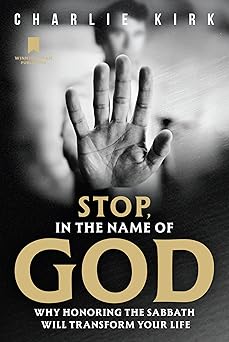
The Real Charlie Kirk by Dick Morris is an unflinching and politically charged biography that takes readers deep into the life, rise, and influence of one of America’s most outspoken conservative figures. Scheduled for release on November 4, 2025, this book explores the story of Charlie Kirk, the founder of Turning Point USA, and his evolution from a young political activist to a nationally recognized commentator and thought leader on the American right.
Dick Morris, a veteran political strategist known for his sharp analysis and ability to read the political pulse of America, approaches this project with both journalistic rigor and insider knowledge. He frames Kirk’s story not just as a personal biography, but as a case study in how new media, grassroots activism, and generational change have reshaped modern conservatism.
The book begins by tracing Kirk’s early years, illustrating how his childhood experiences, educational background, and early encounters with political discourse shaped his worldview. Morris paints a picture of a young man who recognized early on that college campuses were fertile ground for ideological battles. From this foundation, Kirk’s decision to launch Turning Point USA becomes not only understandable but inevitable. The book details the challenges of founding a youth-focused conservative organization in a landscape dominated by liberal voices, showing how Kirk’s strategic thinking and relentless energy helped him turn a small student effort into a national movement.
Morris does not shy away from controversy. He explores the criticisms Kirk has faced, from accusations of extremism to debates over his methods and rhetoric. However, Morris positions these moments within the broader context of America’s cultural and political divides, suggesting that Kirk’s approach—while polarizing—is a reflection of a larger generational shift. Through careful analysis, Morris argues that Kirk embodies the digital age of conservatism, where influence is measured not just by votes or speeches but by viral clips, social media reach, and the ability to frame narratives in real time.
A central strength of The Real Charlie Kirk lies in its portrayal of the intersection between personality and politics. Morris highlights Kirk’s communication skills, his understanding of how to engage younger audiences, and his knack for translating complex issues into sharp, relatable soundbites. The book shows how Kirk’s success stems not just from ideology but from his grasp of media strategy and cultural momentum.
The narrative also explores Kirk’s relationships with key figures in conservative politics, including his interactions with political leaders, influencers, and media personalities. Morris uses these relationships to illustrate how Kirk has navigated internal divisions within the right, from libertarians to populists, and how he has maintained his relevance through shifting political winds.
As the chapters unfold, Morris presents Kirk as a figure who has both redefined and challenged the traditional conservative establishment. Rather than portraying him as a one-dimensional provocateur, Morris positions him as a catalyst for change, someone who has reshaped how young Americans engage with political ideas. He examines the philosophy behind Kirk’s activism—faith, capitalism, and American exceptionalism—and how those values drive his message and appeal.
By the final sections, The Real Charlie Kirk becomes more than a biography—it transforms into a reflection on the future of conservatism itself. Morris asks what Kirk’s rise means for the Republican Party and for America’s political landscape in the coming decades. He suggests that Kirk’s brand of activism may hold the key to energizing future generations, but it also presents challenges in balancing passion with pragmatism.
Stylistically, Morris writes with clarity and confidence. His tone is assertive yet measured, offering readers both admiration and critique. The prose moves briskly, combining biographical storytelling with political commentary. Readers will find that the book flows like both a profile and an analysis, drawing them into the tension between media influence and ideological conviction.
Overall, The Real Charlie Kirk is a compelling and provocative portrait of a modern political disruptor. Dick Morris succeeds in presenting Kirk not as a caricature of right-wing politics, but as a complex figure who symbolizes a movement defined by youth, technology, and cultural confrontation. For readers interested in the evolution of American conservatism, the rise of media-driven political influence, or the personalities shaping the national debate, this book offers a detailed, thoughtful, and timely examination.
In essence, The Real Charlie Kirk serves as both a biography and a mirror of our polarized times. It captures the story of a man who built his influence not through traditional political pathways, but through vision, persistence, and a deep understanding of how ideas spread in the twenty-first century.



